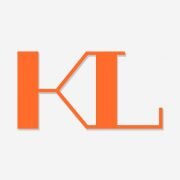Best Structured Finance Lawyers in South Korea
Share your needs with us, get contacted by law firms.
Free. Takes 2 min.
Or refine your search by selecting a city:
List of the best lawyers in South Korea
About Structured Finance Law in South Korea
Structured finance in South Korea refers to a complex array of financial instruments, transactions, and legal frameworks designed to facilitate the pooling of financial assets and the redistribution of risks. This sector typically covers asset-backed securities, project finance, mortgage-backed securities, and collateralized debt obligations. The South Korean structured finance market has grown significantly, allowing businesses and financial institutions to access funding while managing risk through advanced financial engineering. As the landscape continues to evolve, participants must navigate a regulatory framework that is both robust and increasingly aligned with global best practices.
Why You May Need a Lawyer
Engaging a legal expert in structured finance is essential in several scenarios. If you are looking to raise capital through asset securitization, participate in project finance initiatives, or invest in structured products, legal advice can ensure your compliance with local laws. Lawyers play a key role in structuring transactions, mitigating risks, negotiating complex contracts, and liaising with regulatory authorities. Additionally, if you are facing a dispute or challenges related to securities, tax implications, or cross-border financing, professional legal guidance is invaluable to safeguard your interests and navigate the technicalities of Korean law.
Local Laws Overview
The legal system governing structured finance in South Korea encompasses the Financial Investment Services and Capital Markets Act (FSCMA), the Asset-Backed Securitization Act, and regulations issued by the Financial Services Commission (FSC) and the Financial Supervisory Service (FSS). Key aspects include:
- Securitization: The Asset-Backed Securitization Act governs the process of transforming assets such as loans or receivables into marketable securities.
- Disclosure Requirements: The FSCMA prescribes strict disclosure and reporting obligations to ensure transparency for investors and regulators.
- Licensing and Registration: Entities involved in structured finance products must obtain appropriate licenses and register with relevant authorities.
- Tax Considerations: Transactions may attract value-added tax, corporate income tax, and stamp duties, depending on the structure.
- Investor Protection: Regulations ensure that investors receive adequate information and protection against unfair practices.
- Cross-Border Issues: Foreign participation is allowed, but subject to additional regulations and foreign exchange controls.
Frequently Asked Questions
What is structured finance?
Structured finance is a sophisticated form of financing that pools various financial assets, such as loans or receivables, and creates securities backed by those assets to raise capital or manage risk.
Who regulates structured finance transactions in South Korea?
The Financial Services Commission (FSC) and the Financial Supervisory Service (FSS) regulate most structured finance activities, alongside specific legislation such as the FSCMA and the Asset-Backed Securitization Act.
Can foreign investors participate in structured finance deals in South Korea?
Yes, foreign investors are allowed to participate, but must comply with local regulations, foreign exchange laws, and additional reporting obligations.
What are the main types of structured finance products in Korea?
Common products include asset-backed securities, mortgage-backed securities, collateralized debt obligations, and project finance structures.
Do I need to obtain a license for structured finance transactions?
Entities that originate, arrange, or manage structured finance products usually need to register with or obtain licenses from relevant Korean regulatory bodies.
What legal risks are associated with structured finance?
Key risks include regulatory changes, compliance failures, misrepresentation of assets, tax liabilities, counterparty risk, and cross-border legal issues.
How are investors protected in Korean structured finance transactions?
Investor protection is achieved through mandated disclosures, regular reporting, and enforcement of fair dealing standards by regulatory authorities.
Are there tax implications for structured finance transactions?
Yes, taxes can apply to both the originator and the investors, and may include corporate taxes, value-added taxes, and withholding taxes depending on the structure.
What happens if a party defaults within a structured finance arrangement?
Default scenarios are addressed in the legal documentation, often with provisions for asset liquidation, enforcement of security interests, and recourse mechanisms.
When should I consult a lawyer regarding structured finance?
Consult a lawyer at the planning phase of any structured finance transaction or when facing legal uncertainty, disputes, or regulatory investigations related to structured finance.
Additional Resources
If you are seeking more information or assistance regarding structured finance in South Korea, you may find the following resources useful:
- Financial Services Commission (FSC) - Responsible for policy making, licensing, and supervision in the financial sector.
- Financial Supervisory Service (FSS) - Oversees compliance, inspections, and enforcement of financial regulations.
- Korea Financial Investment Association (KOFIA) - Offers guidance and support to financial investment businesses.
- Korean Bar Association - A source for finding qualified legal professionals specializing in structured finance.
- Ministry of Economy and Finance - Provides information on tax policies and economic regulations impacting structured finance.
Next Steps
If you believe you require legal advice or representation in matters concerning structured finance, consider the following steps:
- Identify the specific nature of your issue or transaction related to structured finance.
- Consult with a qualified lawyer who specializes in financial regulatory law or structured finance.
- Prepare necessary documentation, including contracts, transaction details, and any correspondence with financial authorities.
- Arrange an initial consultation to discuss your legal objectives, risks, and the best course of action.
- Follow your lawyer's guidance to ensure compliance with all applicable regulations and to protect your interests in any structured finance transaction.
Early legal intervention can help prevent costly errors, ensure regulatory compliance, and provide you with the confidence needed to participate in South Korea’s dynamic structured finance market.
Lawzana helps you find the best lawyers and law firms in South Korea through a curated and pre-screened list of qualified legal professionals. Our platform offers rankings and detailed profiles of attorneys and law firms, allowing you to compare based on practice areas, including Structured Finance, experience, and client feedback.
Each profile includes a description of the firm's areas of practice, client reviews, team members and partners, year of establishment, spoken languages, office locations, contact information, social media presence, and any published articles or resources. Most firms on our platform speak English and are experienced in both local and international legal matters.
Get a quote from top-rated law firms in South Korea — quickly, securely, and without unnecessary hassle.
Disclaimer:
The information provided on this page is for general informational purposes only and does not constitute legal advice. While we strive to ensure the accuracy and relevance of the content, legal information may change over time, and interpretations of the law can vary. You should always consult with a qualified legal professional for advice specific to your situation.
We disclaim all liability for actions taken or not taken based on the content of this page. If you believe any information is incorrect or outdated, please contact us, and we will review and update it where appropriate.
Browse structured finance law firms by city in South Korea
Refine your search by selecting a city.














